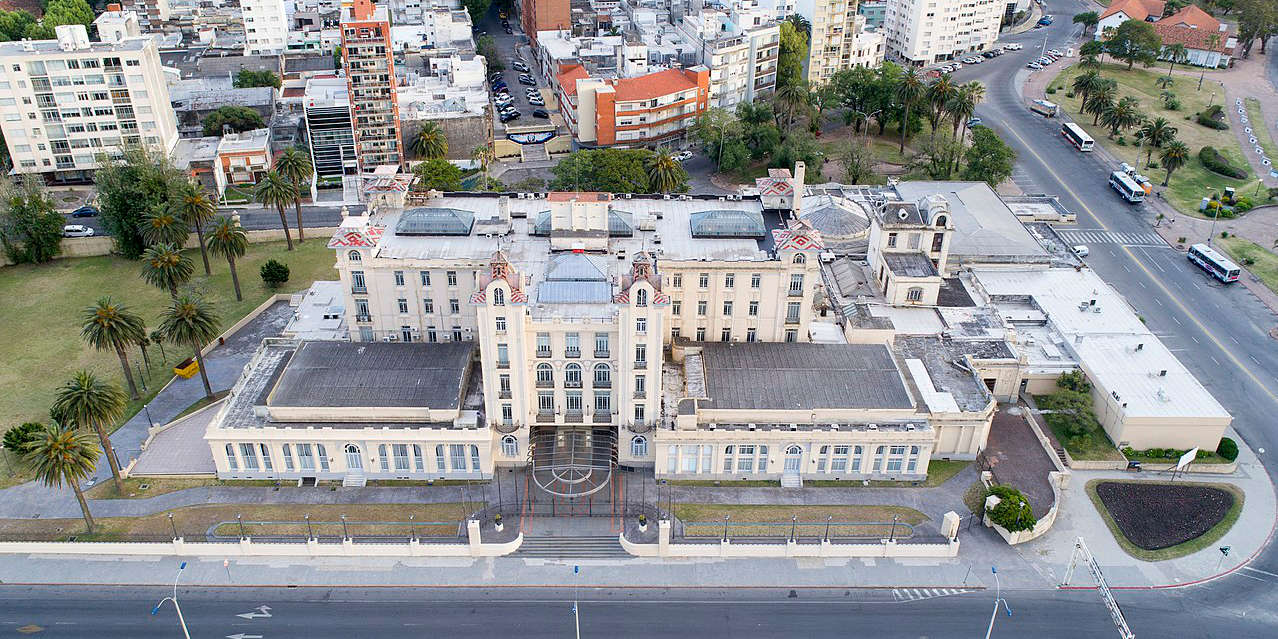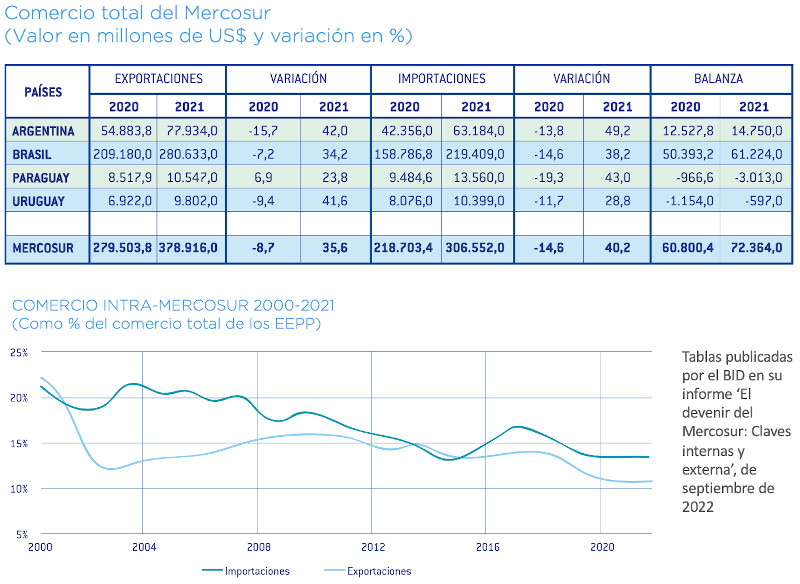In the picture
Aerial view of Mercosur headquarters in Montevideo [Fedaro].
Uruguay has a long-standing struggle within Mercosur to establish free trade agreements with countries such as China and South Korea, or even to join the association Trans-Pacific. The more protectionist orientation of Brazil and Argentina, Mercosur's largest partners, hinders the trade opening Degree desired by Uruguay, whose hands are tied by the internal clauses of an integration project that has fallen far short of its initial ambitions. Mercosur seems to be at a certain impasse.
goal Uruguay argues that an economic integration project such as the Southern Common Market (Mercosur) not only aims to increase trade within the trading bloc itself, which in reality lags far behind other more compact blocs such as the European Union, but also to increase interaction with the rest of the world, so that countries can be inserted into both regional and global chains.
Since his election in 2020, President Luis Lacalle Pou has insisted within Mercosur that Uruguay be allowed to advance in free trade negotiations unilaterally, given that its other partners are reluctant to this greater openness (especially Argentina and Brazil; less problematic is Paraguay), leaving the door open so that in a final stage, once a large part of agreement has been cleared, this could be extended to the other three countries, with the appropriate national safeguards. But its neighbors reply that, according to the internal clauses, any negotiation of new agreements must be carried out by all of them at the same time. They see the risk that Uruguay could end up going on its own and that this would mean the breakup of Mercosur.
Uruguay proposes a flexibility mechanism that would allow Mercosur members to negotiate individually with third countries or groupings of countries, and has vehemently defended its position at recent Mercosur summits. Upon assuming the pro tempore presidency of the organization in July 2022, Lacalle warned that Uruguay "will not amputate" the possibility of trade agreements if the other partners insist on not accompanying him. "Uruguay wants to move forward with Mercosur", because "this way we have more strength, more dimension and more negotiating power with the world". He added, however, that if Mercosur does not accompany in negotiations with third countries, Uruguay is willing to go it alone. At the December 2022 summit, held in Montevideo and hosted by Lacalle, the clash was evident and the confrontational atmosphere prevented the publication of a joint statement . Its three partners accuse Uruguay of "foul play" and "unsportsmanlike tactics" and warn that they reserve the right to economic retaliation if Uruguay negotiates bilateral agreements without the bloc's authorization.
In the Uruguayan diary are the talks with Turkey, South Korea and China, with which it has carried out a great rapprochement, but cannot advance in them due to the internal dispute of Mercosur. It has also order joined the agreement Trans-Pacific Partnership for Economic Cooperation, known as TPP, to which it submitted the application on December 1, 2022. On the other hand, Lacalle's visit Lacalle's accession to the White House in June 2023 took place in the midst of the processing of a partnership initiative between the United States and Uruguay, although of a lower rank and scope than the free trade agreement that in 2007 they had the opportunity to close and that entrance did not advance due to the reluctance of the Frente Amplio towards the Bush Administration.
Uruguay has a great need for exports due to the high productive capacity of its agriculture and livestock, facilitated by the country's excellent natural conditions, and its small population: it produces food for some 40 million people and has only 3 million inhabitants. Its exports to the large markets of Brazil and Argentina are limited because these two neighbors, as well as Paraguay, are also important food producers, which makes it necessary to look for other destinations beyond Mercosur.
Following these conflicting interests, Buenos Aires prefers to establish sectoral agreements with specific markets, while Brazil promotes a slow opening to accompany a risk-free liberalization of its Economics. Paraguay shares Uruguay's desire for access to new markets, although in institutional diplomacy within Mercosur it avoids forming an alliance with Montevideo.
Uruguay complains that Mercosur has not signed any free trade agreement agreement with any of the ten largest economic powers in the world. The agreement reached with the European Union in June 2019 has not been able to move forward as several European countries have refused to ratify it because they consider that it harms their own productive sectors; neither has Argentine Peronism seen its impulse with good eyes.


